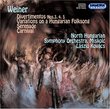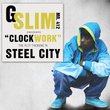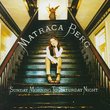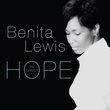| All Artists: McCoy Tyner Title: Song for My Lady Members Wishing: 1 Total Copies: 0 Label: Ojc Release Date: 7/1/1991 Genres: Jazz, Pop Styles: Modern Postbebop, Bebop Number of Discs: 1 SwapaCD Credits: 1 UPCs: 025218631327, 0090204065295, 025218031325, 025218031349, 025218031318 |
Search - McCoy Tyner :: Song for My Lady
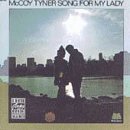 | McCoy Tyner Song for My Lady Genres: Jazz, Pop
|
Larger Image |
CD DetailsSimilar CDs
|
CD ReviewsGood, but look elsewhere Michael B. Richman | Portland, Maine USA | 07/31/2000 (3 out of 5 stars) "McCoy Tyner really changed his sound immediately after the Coltrane years. Instead of those bright, familiar chords that he popularized with 'Trane, from around 1968 on Tyner trades them in for a darker, richer sounding comp by playing more in the lower register. It is most noticeable on "Song For My Lady" on the remake "The Night Has a Thousand Eyes." Compare this version to the one on "Coltrane's Sound" and you'll see what I mean. The other tunes blend african rhythms and textures with Sonny Fortune's soaring soprano sax on "Native Song," "Essence" and the title track. But the album suffers in my opinion for a few reasons. One is the use of electric bass, which just does not stand the test of time. Another is while this album might sound good on a first listen it doesn't wear well on repeated listens. Finally, Tyner's earlier solo albums for Blue Note, particularly "Extensions" and "Asante," and the Milestone album "Sahara," cover the same musical territory and are better all around albums. My advice is to start with one or all of those three mentioned above, and if you adore them, get "Song For My Lady."" Very much worth a listen Tyler Smith | Denver, CO United States | 02/15/2001 (4 out of 5 stars) "Tyner's Milestone discography is among the strongest produced by post-Coltrane jazz musicians. The material runs the gamut from great solo piano ("Echoes of a Friend") to superior live releases ("Enlightenment" and "Atlantis") to quartet recordings of uncommon power ("Sahara"). I'd agree with the previous reviewer that "Song for My Lady" is not in the top echelon of Tyner's Milestone releases, but that's rarified air indeed. I would, though, rank it as an above-average date, even by his lofty standards.For one thing, he is joined, as he was on "Sahara" by the incomparable Sonny Fortune, who once again breathes lusty soprano and alto saxophone life into Tyner's compositions and crafts flute lines of uncommon purity and beauty. For another, the great trumpet player Charles Tolliver makes an appearance, on the extended composition "Essence." Tolliver's soaring lines and powerful lyricism are not often enough heard, and it's a treat to listen to him play with Tyner.Another plus is that Tyner, as was nearly always the case on his Milestone releases, puts together a widely varied program on "Song for My Lady." For example, "Native Song" has the exotic, Eastern-flavored sound that Tyner was adept at producing in the '70s, while "A Silent Tear" is unaccompanied piano, and "Essence" is an explosive session that draws on his work with Coltrane. But the high point is undoubtedly "The Night Has a Thousand Eyes," on which Tyner leaves his indelible mark. Tyner is capable of delicacy on the piano, but he made his name with a thundering left-hand attack paired with lightning runs on the right. If ever there was a signature tune displaying that technique, it's "The Night Has a Thousand Eyes." And it's still a great kick to hear Fortune's sax soaring over Tyner's chord changes.For me, there are only three kinds of Tyner: good, better, and best. "Song for My Lady" falls in the middle category, which is not at all a bad place to be."
|

 Track Listings (5) - Disc #1
Track Listings (5) - Disc #1